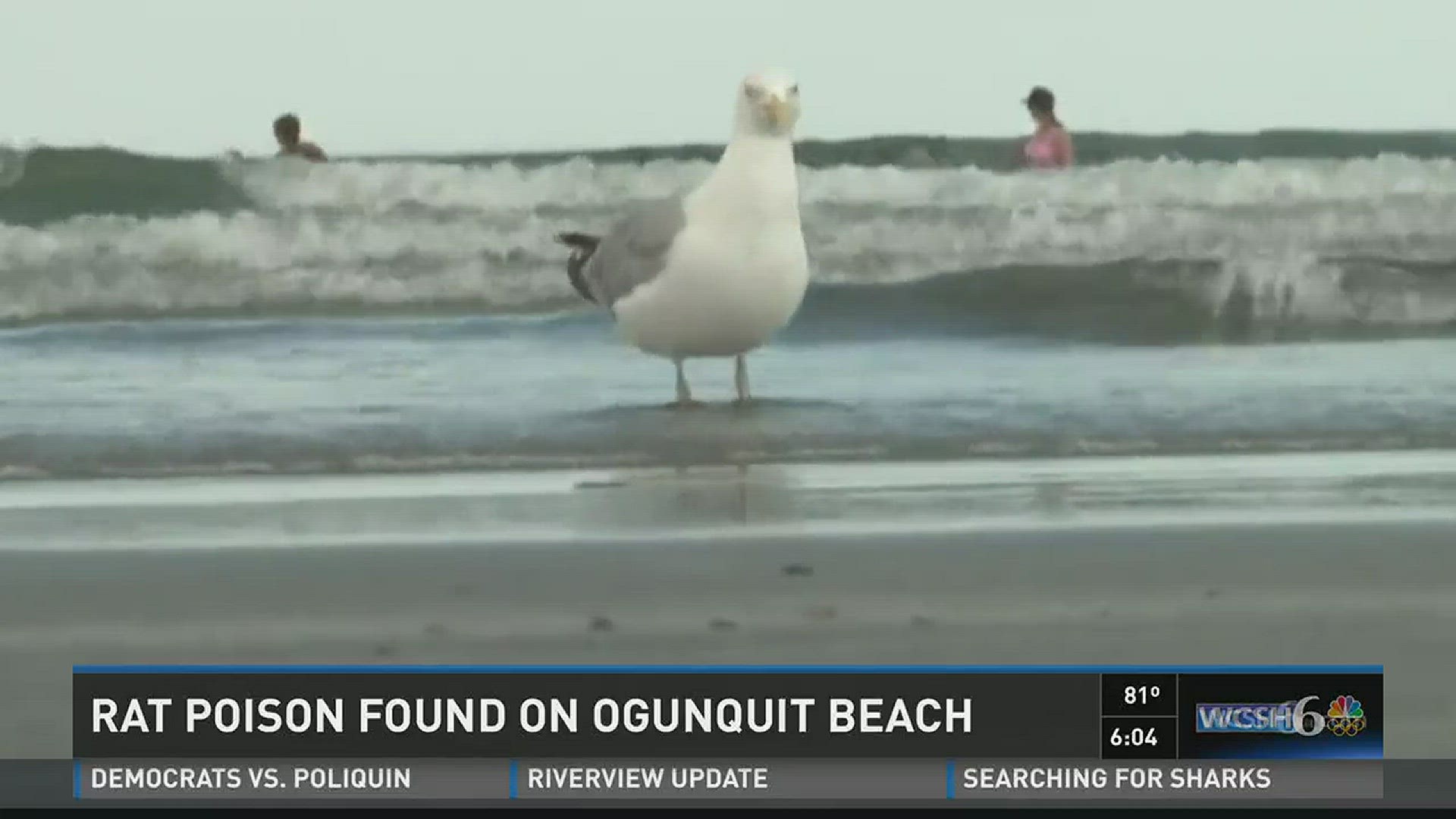OGUNQUIT, Maine (NEWS CENTER) — Rat poison is killing more than just rats along a popular beach in southern Maine.
Thousands of tourists flock every year to visit Ogunquit.
Rat poison was recently placed on the beach there to deal with an ongoing rodent issue, but it's now started killing seagulls.
Officials have blocked off the rocks with caution tape in order to protect beachgoers from possible contamination.
“We have located at least one dead seagull and parts of other birds which are being held as evidence and are going to be tested to see if that bird did in fact die from rat poisoning,” said Maine Warden Service Sergeant Tim Spahr.
The Ogunquit acting town manager Mark O’Brien received reports of rat poisoning along the rocks of the beach.
The poison kills more than just rats - officials are now studying a dead seagull, and fear what else this could affect.
“Not only about individual dead birds,” said Spahr. “But other birds, raptors, that may eat dead birds and then what you have is the poison being distributed through the food chain.”
O’Brien released in a statement that a police officer believes he was exposed to the poison after more pellets were discovered - he had to be treated at a nearby hospital.
Wardens are particularly concerned about a hawk migration that flies through Ogunquit in September.
“We'll be looking closely at that just to ensure that hawks...we aren't coming out with an unusual amount of dead or injured or lethargic hawks that may have been a result of eating birds that have been poisoned,” said Spahr.
O’Brien also said this poison distribution was approved under the last administration after several resident and tourist complaints about rodents on the beach.
If not completed with an authorized permit - this is a punishable criminal violation of the Migratory Bird Treaty Act.
As far as the future of the investigation goes? Sergeant Spahr says, “We feel like we're in a pretty good place as far as its containment and its investigation.”
The next step is for the U.S. Dept. of Fish and Wildlife to test the bird.

